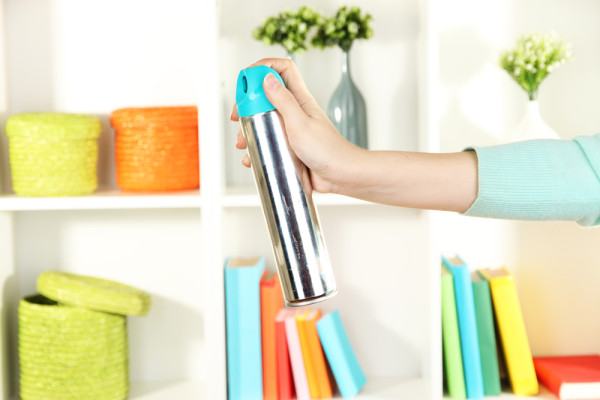During the winter, the air in your Baltimore, Maryland, home can seem stale when you close windows and doors. To combat stale air, you may be tempted to use commercial air fresheners. However, these air fresheners only mask unpleasant odors with potentially harmful synthetic fragrances. Discover how commercial air fresheners lower indoor air quality in your home and how you can take action to improve air quality.
Identifying Chemicals in Air Fresheners
Harmful chemicals from air fresheners can cause headaches, rashes, dizziness, migraines, asthma attacks, mental confusion, coughing, and other symptoms. These chemicals could include camphor, phenol, ethanol, formaldehyde, or phthalates.
Phthalates are substances that help distribute and deliver fragrances, but they can also affect your body’s hormone levels and increase cancer risk and birth defects. Formaldehyde can also increase cancer risks as well.
Ingredients for air fresheners aren’t regulated in most states and children are especially vulnerable to the chemicals these products could contain. Since manufacturers don’t have to list ingredients, choosing a safe commercial air freshener is difficult. Many chemicals from air fresheners are known as volatile organic compounds, or VOCs. These chemicals evaporate at room temperature and stay in the air for a long time. You could inhale them, your skin could absorb them, or you could accidentally ingest small amounts.
Working to Purify the Air
Air purifiers filter or clean indoor air instead of simply covering smells. For example, air ionizers give off negative ions that bond to smoke and dust particles, giving these particles a charge so that they stick to nearby walls and furniture. Some models have easy-to-clean collector plates that keep dirt and other contaminants from collecting on walls, furniture, and floors.
Ozone generators encourage contaminants to group into clusters and fall out of the air. Ozone also oxidizes organic chemicals into harmless salts, carbon dioxide, and water.
Advanced filtration systems remove impurities in the air much more efficiently than standard HVAC filters. Some models can capture almost all the microscopic airborne particles in VOCs and many are compatible with programmable thermostats. You can preset operations and get alerts to change the filters.
Sensing Natural Air Fresheners
Air fresheners containing natural essential oils are also popular. While some people can be allergic to essential oils such as cinnamon or eucalyptus, natural air fresheners shouldn’t lower indoor air quality. As with any product you buy for your home, make sure you read labels carefully for vague words such as fragrance. If you don’t see the name of a specific essential oil, then the air freshener probably has VOCs or other chemicals. These chemicals are more likely to cause sneezing and eye irritation if you bring them into your home.
Instead of buying premade air fresheners, you can make your own. Add eight to 10 drops of essential oil to a spray bottle filled with about one cup of water. Place a few drops of essential oil on a cotton ball and then tuck the cotton ball into a drawer or closet to freshen your clothes and linens. You can also make potpourri or herbal sachets with rose petals, lavender, or other natural ingredients.
Maintaining HVAC Systems
Heating and air conditioning systems improve indoor air quality by filtering the air and introducing fresh air to buildings. You can also add a mechanical ventilator for more fresh air.
When your HVAC system works properly, VOCs and other harmful chemicals don’t build up. Check the filters on your system once per month and change them when they get dirty or, at least, every three months. You should also have your heating and air conditioning system inspected for problems like leaks in the ductwork at least once per year.Have a professional clean the ducts to remove dirt, dust, mold, and chemical contaminants that build up over time.
Our Griffith Energy Services service professionals have more than 100 years of combined experience and we offer convenient 24-hour emergency service for your heating and air conditioning system. Contact us at 888-474-3391 for more ways to reduce odors in your home without impacting your indoor air quality.
Image provided by Shutterstock




